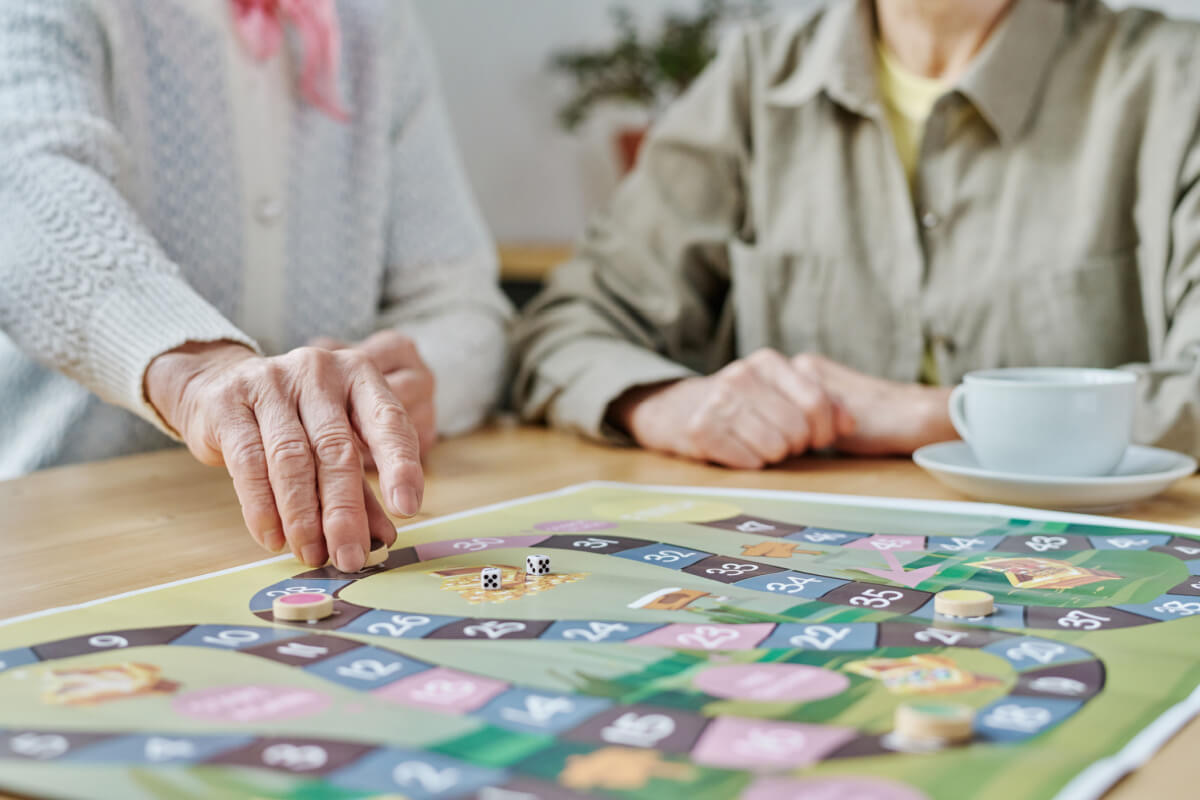
Baking, jigsaw puzzles, gardening, board games and watching movies are fun activities and hobbies that everyone can enjoy. However, for those living with dementia, these pastimes can also be therapeutic and beneficial for improving cognitive function.
Studies have shown that physical activity, intellectual stimulation and social interaction can help slow down memory loss and provide a sense of purpose and joy to one’s quality of life.
At Astral at Auburn, our memory care community in Auburn, Indiana, is dedicated to improving the quality of life of residents by implementing engaging, stimulating and joyful activities. As a result, you can rest assured that your loved one is embracing purposeful living in a safe, comfortable and engaging environment.
If you are a dementia care provider or know someone living with dementia, we want to share simple activities that can promote cognitive function and encourage connection.
Games and puzzles can give the brain a workout at any age, helping to keep the mind sharp, train your memory and improve problem-solving techniques. For those in dementia care, games and puzzles can help to slow down the progression of dementia.
Some great options for board games include Connect Four, dominos, matching games and even Uno (the brightly colored and clearly labeled cards can be great for those in the earlier stages of dementia, and the rules can be easily adjusted for those in the later stages). In addition, jigsaw puzzles are excellent for improving memory and hand coordination, and provide an opportunity for conversation and connection with participating loved ones.
As dementia progresses, so does the loss of stimulation of the five senses: sight, sound, touch, smell and taste. Sensory stimulation motivates the senses in new ways, and sensory-based activities are a great tool for this.
For example, consider planting a sensory garden. A sensory garden is a collection of various plants that appeal to the senses and can keep a person stimulated and engaged. Not only do sensory gardens allow your loved one to connect with nature, but they can help reduce stress and promote calming feelings, while the vivid colors and scents can help recall memories of the past.
To start a sensory garden, pick plants that stimulate the different senses. Here are a few examples:
Reminiscence Therapy is exactly what it sounds like. Through meaningful activities, this form of dementia care therapy triggers positive memories. Fortunately, there are many ways to implement reminiscence therapy into various activities. For example, if your loved one has a favorite film, perhaps one they loved when they were young or a movie they used to watch with you when you were growing up, sit on the couch and watch together. Keep the conversation moving by bringing up any memories of watching the movie together and asking questions about actors, scenes and facts that might trigger an emotional response from your loved one.
Creating a memory box is another meaningful way to engage your loved one and trigger memories. Gather a small collection of your loved one’s favorite things, anything from trinkets to family photos. As you place items into the memory box, ask your loved one to tell you the story behind each one.
Cleaning and chores might not sound like a fun way to spend an afternoon, but they can prove beneficial and therapeutic for a person living with dementia. Everybody wants to feel independent within their daily routine; even the most mundane chore is a sign that someone is able to complete a task on their own. For someone living with dementia, it can be challenging to accept that they are unable to take care of daily chores. Not only does this take away a sense of independence, but it can affect self-esteem and confidence.
Ask your loved one to help you with simple, safe tasks around the house, like folding laundry, setting the table or unpacking groceries. These tasks make your loved one an active participant in their daily routine and provide them with a sense of purpose.
We invite you to discover purposeful memory care in Auburn, Indiana, by visiting the Astral at Auburn website or calling us at 260-908-8300.
Noticing changes in a family member’s memory, behavior or communication can be concerning. While occasional...
Making the move to a senior care community in Auburn, IN, often brings a mix...
As we age, the food we eat continues to play a major role in how...